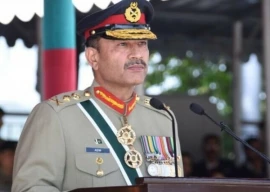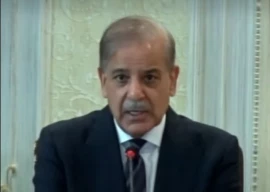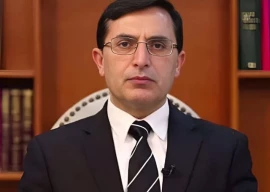
Out of half-a-million federal government employees only 20,000 are well-trained and technically sound while the rest sorely need professional training.
Prime Minister Nawaz Sharif was informed of this on Thursday as he chaired a follow-up meeting on the implementation of reform in the civil service. The Ministry of Planning and Reform Commission, which was given the task on February 9 to develop a framework, both long- and short-term, for deep structural reforms, informed the premier about preliminary vision of transformation in the civil service.

According to details shared by sources privy to the development, PM Nawaz was informed that there are a total of half-a-million federal government employees but only 20,000 are well-trained and have skills to cater to the issues. They had come through passing the central superior examination.
The rest of the staff, who came through other ways, utterly need training, they said, adding the ministry was of the view that employees not ready to go with reforms should be laid off. There are a lot of bureaucrats, the sources claimed, who are getting unequal hefty package as they were obliged by the previous regimes.
Premier meeting on energy
Meanwhile, at the ninth meeting of the Cabinet Committee on Energy (CCE), PM Nawaz issued several orders to speed up the pace of projects designed to increase Pakistan’s capacity to produce energy, but failed to address any of the financial bottlenecks, such as rampant electricity theft, that are the cause of the current energy crisis. According to an official handout issued by his office, the prime minister ordered all power-related projects to be fast-tracked, perhaps under the mistaken impression that Pakistan has a capacity problem.
Pakistan’s total power generation capacity exceeds 23,500 megawatts, a level that even summer peak demand – when all hydroelectric power plants are operating at optimal capacity – has rarely ever crossed.
Sharif directed the CCE to take all necessary measures to begin the construction of the 1,680km Turkmenistan-Afghanistan-Pakistan-India (TAPI) gas pipeline that would bring natural gas from the Caspian region to Pakistan and beyond. The prime minister met with the petroleum ministers of all of the countries involved in the project on Wednesday and was pleased to note that a timeline for the project had been agreed upon.
The CCE also gave approval for government officials to begin negotiations with Malaysia, China, Algeria, Nigeria, and Trinidad to import Liquefied Natural Gas (LNG) from those countries. Negotiations on LNG imports are already underway with Qatar.
The committee also agreed on an improved mechanism for payments to LNG suppliers to avoid the occurrence of circular debt in the natural gas segment of the energy supply chain.
In addition, the government is also seeking to enter into negotiations with Russia, Qatar and China for assistance in the construction of a larger 42-inch North-South gas pipeline that would run alongside the N-5 highway.
The CCE also gave approval for the inclusion of the Gwadar-Nawabshah gas pipeline into the Early Harvest Program of China Pakistan Economic Corridor, a program in which Islamabad is seeking financial assistance from Beijing for $45 billion worth of infrastructure projects in return for granting Western China access to Gwadar Port.
Published in The Express Tribune, February 13th, 2015.




1736856635-0/BeFunky-collage-(47)1736856635-0-165x106.webp)





1736851649-0/Tribune-N-(6)1736851649-0-270x192.webp)
1732012115-0/Untitled-design-(14)1732012115-0-270x192.webp)


1736765990-0/fizza-(14)1736765990-0-270x192.webp)








COMMENTS (1)
Comments are moderated and generally will be posted if they are on-topic and not abusive.
For more information, please see our Comments FAQ